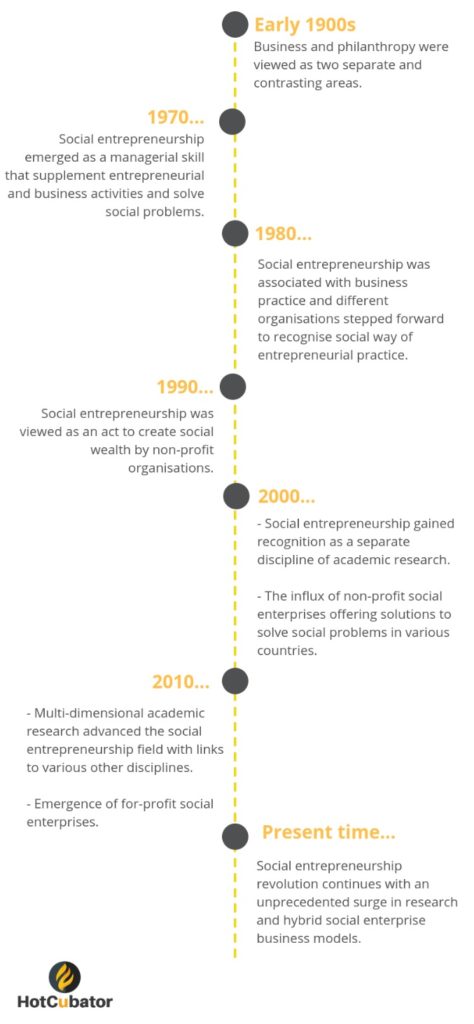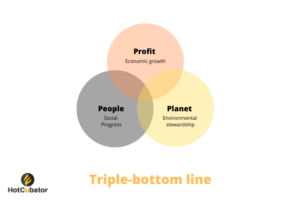
The emergence and evolution of social entrepreneurship has remained a contested concept and researchers have generated differing opinion on this (Austin et al., 2006; El Ebrashi, 2013; Short et al., 2009b). The evidence does not suggest a unique evolutionary path, rather a conundrum dictated by multi-dimensionality. Studies show that the term social entrepreneur was first mentioned by Joseph Banks in his seminal work, The Sociology of Social Movements, which was published in 1972. Though not directly related to entrepreneurship, Banks used the term social entrepreneur to illustrate managerial skills which he referred to as a solution to different social problems. Two European author Borzaga and Defourny in their book titled The emergence of Social Enterprise claimed that the social entrepreneurship concept started with the social economy concept in France in 1970 in the form of cooperative associations of mutual assistance. Other scholars have argued suggesting that the origins of social entrepreneurship dated back to the 1980s, after Bill Drayton founded Ashoka, a grant-making organisation that supported innovators and their pattern-breaking solutions to social problems in the US.
The academic recognition of social entrepreneurship only occurred after Peter Drucker introduced the concept of social innovation. He viewed social innovation mainly as a managerial practice to enhance efficiency by creating social wealth. In fact, the term social entrepreneur was only used after the mid-1990s as a substitute for the innovator for the public sector or public entrepreneur, which used to be the previous practice. In the research space, social entrepreneurship field came into the early 1990s. The very first journal article on social entrepreneurship appeared in 1991 as has been evidenced by the work of Dacin et al. (2010). Since then, there has been a steady influx in both practice and research orientation of social entrepreneurship field.
The following figure illustrates the historical evolution of the social entrepreneurship domain during the past four decades:

Here is how social entrepreneurship has evolved through various decades –
•1970
- Social entrepreneurship emerged as a managerial skill that supplemented entrepreneurial and business activity and solved social problems.
•1980
- Social entrepreneurship was recognised as a business practice and different organisations stepped forward to recognize the social way of entrepreneurial practice.
•1990
- Social entrepreneurship was viewed as an act to create social wealth by a non-profit organisation.
•2000
- Social entrepreneurship gained recognition as a separate discipline of academic research.
- Social entrepreneurship gained wide recognition through practice.
- The influx of non-profit social
- enterprises offering solutions to solve
- social problems in various countries
2010
- Multi-dimensional academic
- research advanced the social
- entrepreneurship field with links
- to various other disciplines.
- Emergence of for-profit
- social enterprises.
Further reading:
Borzaga, C., & Defourny, J. (2004). The emergence of social enterprise (Vol. 4). London: Psychology Press.
Bacq, S., & Janssen, F. (2011). The multiple faces of social entrepreneurship: A review of definitional issues based on geographical and thematic criteria. Entrepreneurship & Regional Development, 23(5-6), 373-403.
Drucker, P. F. (1990). Managing the non-profit organization: Practices and principles. New York: Harper Collins.
El Ebrashi, R. (2013). Social entrepreneurship theory and sustainable social impact. Social Responsibility Journal, 9(2), 188-209.








